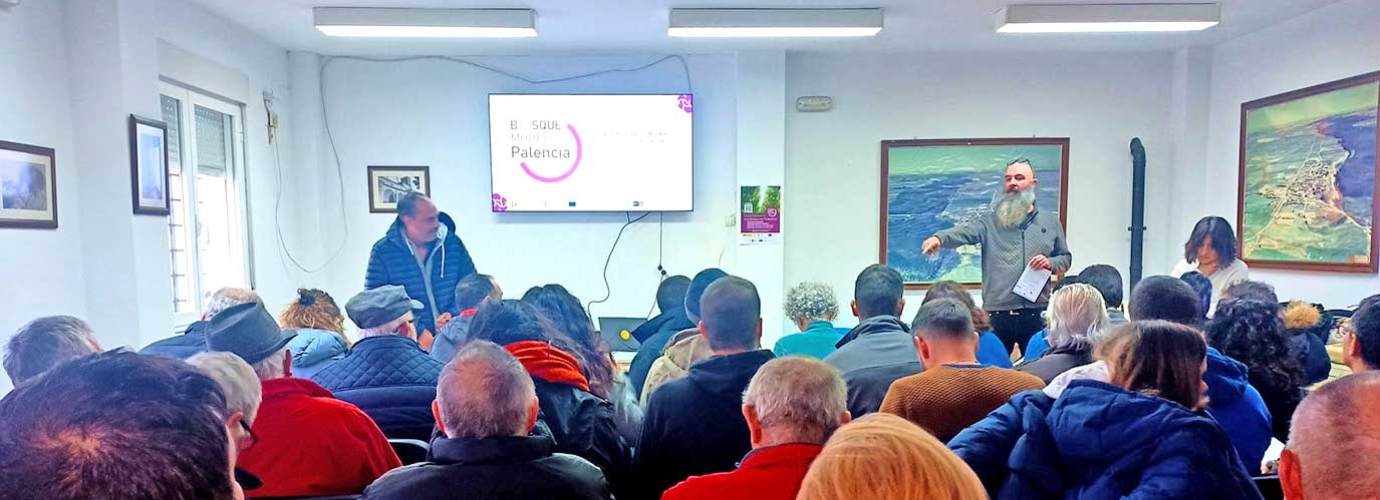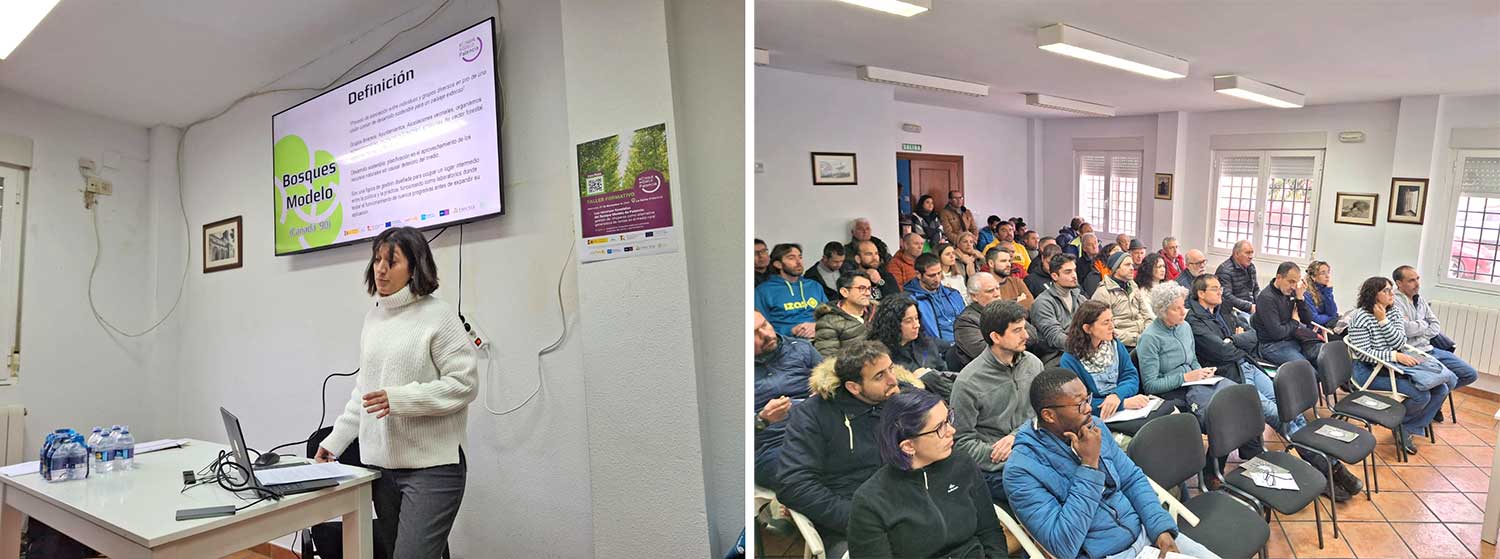News archive
Poplar Management Workshop Enhanced Sustainable Forestry Efforts in Palencia

On Wednesday, November 27, 2024, the town of La Serna in Palencia hosted a training workshop titled "The Forest Resources of Palencia Model Forest: Management of Poplar Plantations as an Income-Generating Alternative in Rural Areas". The event brought together a diverse audience, including public and private forestry owners, forestry companies, and representatives from public administration, with the aim of promoting sustainable practices and unlocking the economic potential of poplar plantations in the region.
The workshop opened with an introduction to the objectives of Palencia Model Forest project, which focuses on innovative ways to utilize forest resources while ensuring environmental sustainability. Experts highlighted the vital role poplar plantations play in generating income for rural communities and explored advanced forestry techniques aimed at enhancing productivity. Topics ranged from the selection of new poplar clones to improve yields to modern practices for planting, pruning, and plantation management.

A series of presentations from leading forestry professionals provided insights into key aspects of poplar cultivation. Felipe Bravo, from the University of Valladolid, addressed the role of poplar in the region’s forestry inventory, while Olga González from the Federation of Forestry Associations of Castilla y León analyzed recent trends in poplar wood auctions. Joaquín Garnica of Bosques y Ríos S.L. discussed the development and selection of new poplar clones specifically tailored for plantation purposes.
The event also emphasized the importance of sustainable forestry certification. Eva Martínez of PEFC España presented the benefits of certification systems in ensuring the marketability and long-term value of poplar wood. Additionally, Gonzalo Caballé from Fundación Cesefor shared insights into the influence of poplar clones on the production of high-value industrial products, as part of the BIOPOPTECH project.
One of the highlights of the day was the hands-on field demonstration, where participants observed advanced tools like the Chopo 4D application and pruning techniques showcased by Podas del Norte S.L. These practical sessions allowed attendees to witness firsthand the potential of modern forestry technology in improving efficiency and quality in plantation management.
The workshop concluded with a networking session and a presentation by Nacho Campanero from Fundación Cesefor, who outlined future opportunities for forest resource development in Palencia. Attendees left with a deeper understanding of how poplar plantations can drive economic growth in rural areas while maintaining environmental sustainability.
This initiative, funded by the European Union’s Recovery, Transformation, and Resilience Plan, successfully combined technical expertise, innovation, and practical solutions to foster sustainable forestry practices. By enhancing the productivity and profitability of poplar plantations, the workshop reinforced its commitment to supporting rural livelihoods and contributing to regional economic development.
Here the report of the day on Vive radio Palencia
Contact
Tel.: +39 3311162589
Email: info@medmodelforest.net
Email: secretariat@medmodelforest.net


